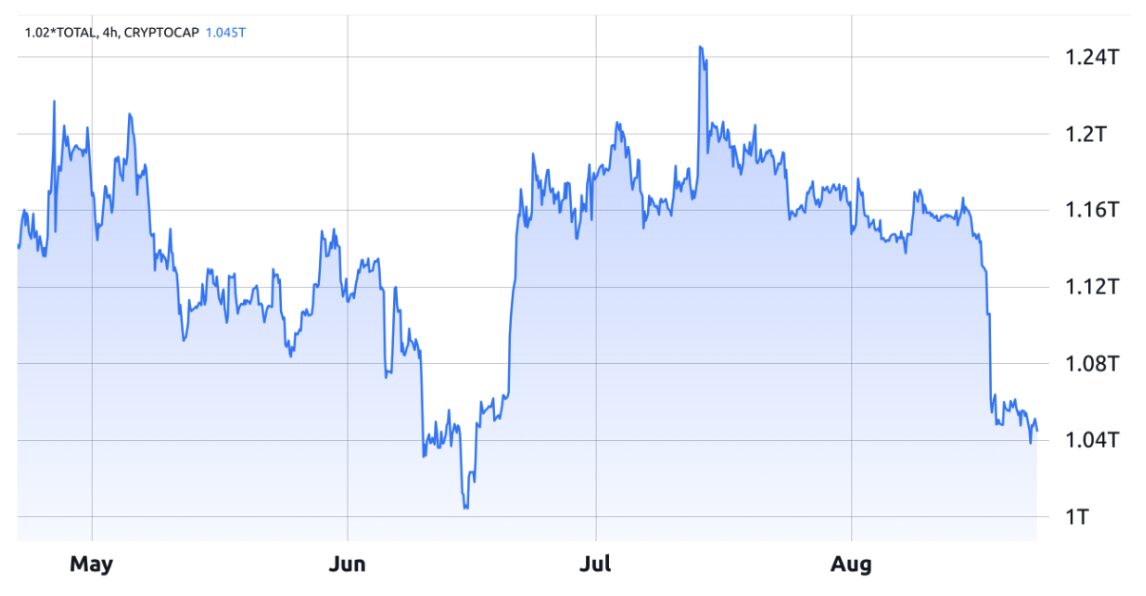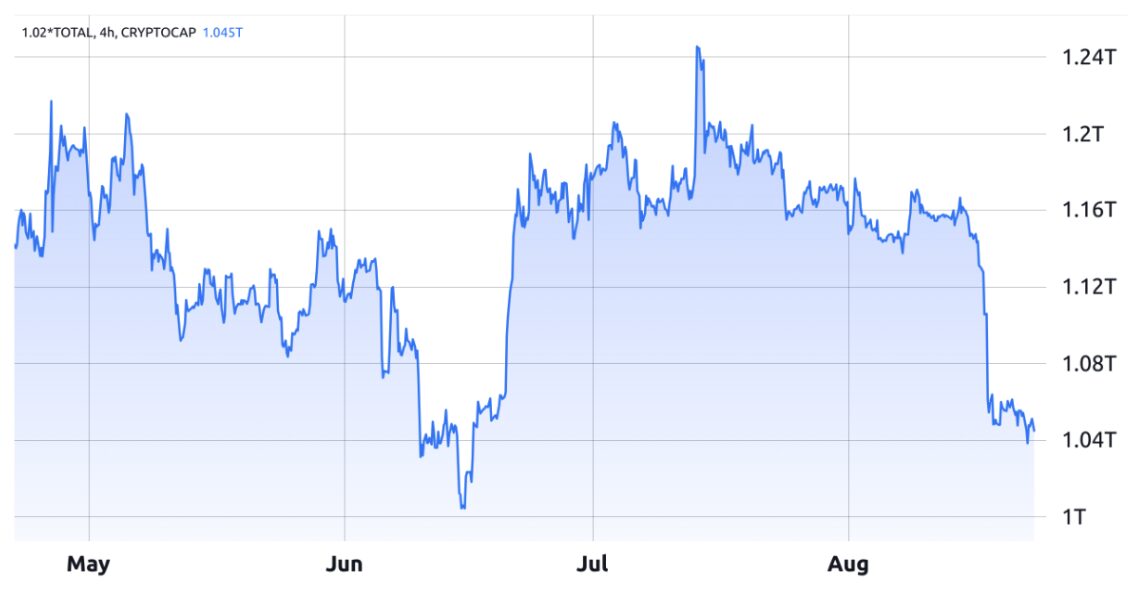The cryptocurrency market has experienced a notable downturn recently, with the total market capitalization falling by 10% between August 14 and August 23, reaching its lowest point in over two months at $1.04 trillion. This movement has triggered significant liquidations on futures contracts, the largest since the FTX collapse in November 2022.

Several economic factors have contributed to this decline. As interest rates have surpassed the 5% mark and inflation remains above the targeted 2%, finance costs for both families and businesses have risen, placing pressure on consumer spending and economic expansion. That causes less money available for savings and could force people to let go of their investments just to cover monthly bills.
Since inflation expectations for 2024 stands at 3.6% and average hourly earnings increased by 5.5% year-over-year, at the fastest pace since 2020, the Federal Reserve (Fed) is likely to maintain or even raise interest rates in the coming months. Consequently, a high interest rate scenario favors fixed-income investments, which is detrimental for cryptocurrencies.
Inflation has receded from its peak of 9% to the current 3%, while the S&P 500 index is only 9% below its all-time high. This could indicate a “soft landing” orchestrated by the Federal Reserve, suggesting that the likelihood of an extended and profound recession is diminishing, temporarily undermining Bitcoin’s investment thesis as a hedge.
Factors emerging from the cryptocurrency industry
Investor expectations had been high for the approval of a spot Bitcoin exchange-traded fund (ETF), particularly with heavyweight endorsements from BlackRock and Fidelity. However, these hopes were dashed as the SEC continued to delay its decision, citing concerns over insufficient safeguards against manipulation. Complicating matters, a substantial volume of trading continues to occur on non-regulated offshore exchanges based in stablecoins, raising questions about the authenticity of market activity.
Financial difficulties within the Digital Currency Group (DCG) have also had a negative impact. A subsidiary of DCG is grappling with a debt exceeding $1.2 billion to the Gemini exchange. Additionally, Genesis Global Trading recently declared bankruptcy due to losses stemming from the collapses of Terra and FTX. This precarious situation could lead to forced selling positions in the Grayscale GBTC funds if DCG fails…
Click Here to Read the Full Original Article at Cointelegraph.com News…
